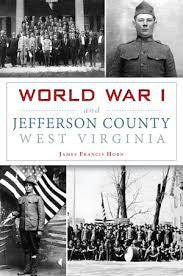Military
Appalachia does have a glorious military history. It starts with the Battle of Kings Mountain, arguably the most decisive battle of the Revolutionary War, in which frontiersmen routed the British regulars. See With Fire and Sword: The Battle of Kings Mountains, 1780 (1978) by Wilma Dykeman and James Stokely. Ever since, Appalachians have volunteered for military service in numbers far exceeding the rest of the country. That is why Tennessee is called the Volunteer State. The Civil War was devastating for Appalachia, pitting neighbor against neighbor, resulting in marauding gangs, loosely connected to each side and neither, that terrorized communities and isolated farms. Major battles ranged from the Battle of Antietam, which resulted in the bloodiest day in American history (see Crossroads of Freedom: Antietam (2002) by James M. McPherson) to The Battle of Chickamauga which resulted in more casualties than any other Civil War battle except Gettysburg. See River of Death: The Chickamauga Campaign (2018) by William Glenn Robertson. Appalachia has provided the nation with some of its greatest war heroes. Alvin York of Fentress County, Tennessee, single-handedly captured more than a hundred German soldiers in World War I. Many books have been written about him, including Alvin York: A New Biography of the Hero of the Argonne (2014) by Douglas V. Mastriano. Appalachia played a significant role in World War II as well. Oak Ridge, Tennessee, provided crucial research and manufacturing that enabled the United States to develop the Atomic Bomb that forced Japan to surrender. See The Girls of Atomic City (2014) by Denise Kiernan. West Virginia had the highest average of battle deaths in Vietnam per capita of any state in the union. See ‘Cross the Pond: Vietnam Vets Uncensored (2014) by Wess Harris. Little Pickens County, South Carolina, has the highest number of Congressional Medal of Honor winners in the nation.
-- George Brosi









